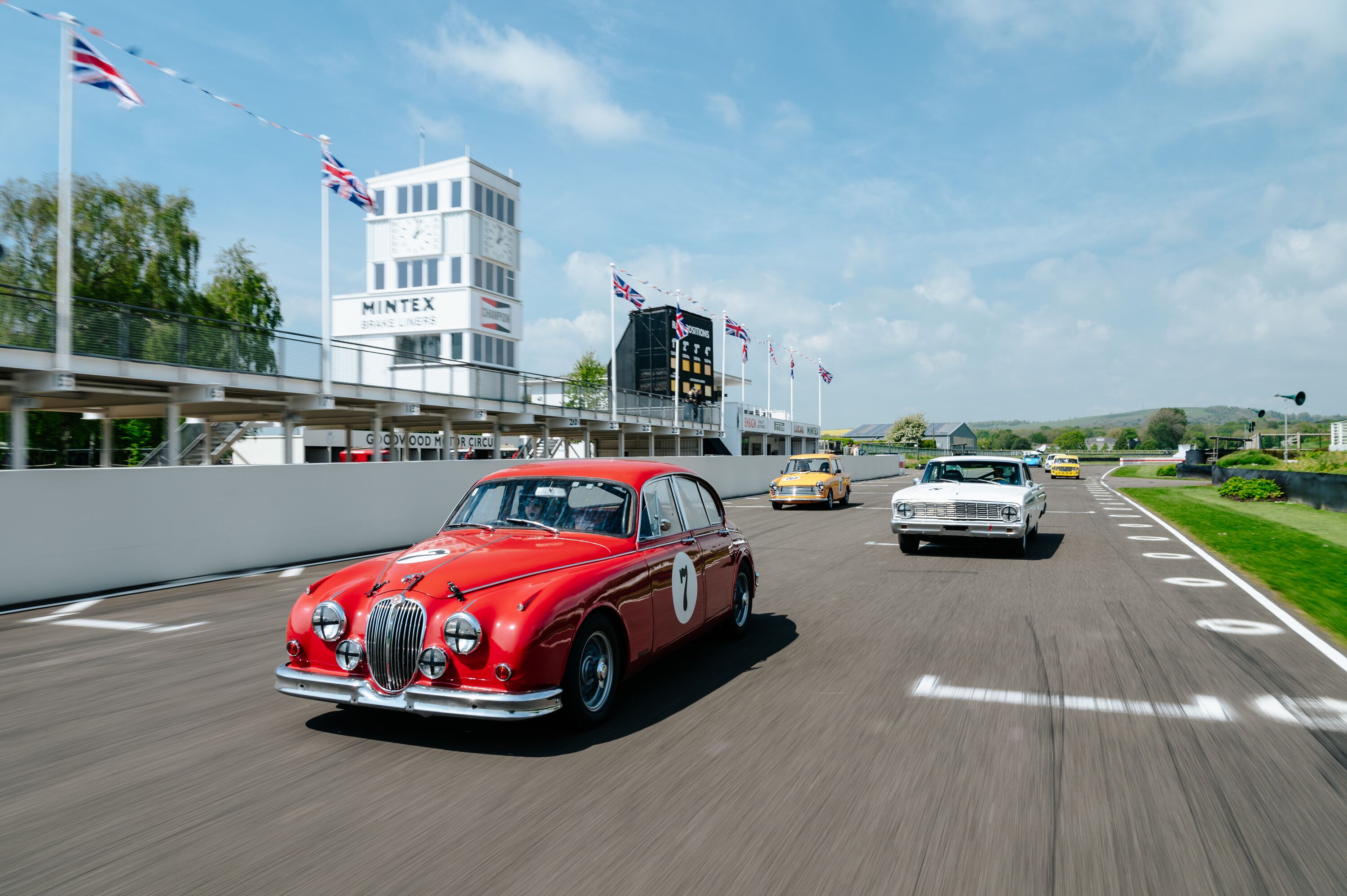Gallo had set the fastest time in event qualification back in May, but that was based on a single-lap time trial. The Olympic Virtual Series final would pit 16 of the fastest players against one another over race distances to determine the champion – and it was quite the stacked field.
Among the 16 qualifiers were four world champions, with 2018 winner Igor Fraga representing Brazil, 2019 winner Mikail Hizal representing Germany, reigning champion Takuma Miyazono representing Japan, and the USA’s Daniel Solis who had formed part of the 2020 Manufacturer Series-winning Subaru team, alongside Hizal and Miyazono.
However it was France’s Baptiste Beauvois who was setting the standard early on. While Hizal took pole position in both of the opening two races, it was Beauvois who’d see the chequered flag first on both occasions.
First the Frenchman came out on top in a race with the Toyota GT86 GT4-style race car, just being able to break the slipstream on the long Tokyo Expressway course as the drivers behind scrapped among themselves. Then he repeated the feat by winning at the Sardegna road circuit in the Toyota GR Yaris after a thrilling four-way scrap through the final sector.
As is often the case with major Gran Turismo Sport events though, the final race carried double points, which meant everyone was still in with a chance – except Fraga, who’d suffered a major network issue and was unable to connect.
It was Gallo this time on pole position, pusing Hizal back into second, with Beauvois third alongside Miyazono. Electing to start on the softest tyre, Gallo made the best of the starts to escape the pack behind him, but Beauvois had quite different fortunes.
After first forming the filling in a Supra sandwich through the first chicane, Beauvois was unceremoniously dumped off the outside of the track at the kink as the soft-shod car of Canada’s Andrew Brooks went through on the inside. That shunted Beauvois to the back of the field and out of contention for the overall win, and the stewards gave Brooks a five-second penalty.
With a tyre advantage to Hizal behind him and Miyazono making a very rare error in the infamous Dragon Trail “Chicane of Death”, Gallo stretched his lead through the first portion of the race, but knew it would come back to his rivals later on with all three tyre grades - soft, medium, and hard – required during the race.
So it proved; with all the tyre changes done, Gallo held an eight-second lead over Hizal, and six laps to defend it to take both the race win and title. Hizal almost made it, but only had one chance to make the pass in the final turn of the race which Gallo fended off well. Winning by just 0.067s, Gallo became Olympic champion, ahead of Hizal, with Beauvois third after fighting back up to ninth.
GT World Challenge also returned this week, with three sprint races – one in each of the three regional championships – all won by familiar names.
The Asia region was up first, with an hour-long race at the Zandvoort circuit, and it was Dayne Warren claiming the honours. Once again, the Australian driver completed a clean sweep, taking his Bentley Continental GT to pole position and fastest lap as well as the race win, just as he had done at Brands Hatch in the opening round.
Philippa Boquida had managed to qualify on the front row, with her time in the McLaren 720S just 0.05s slower, but she and Dillan Tan tangled through the first half of the first lap and Boquida ended up nosed into the barriers. That allowed Warren to get away, and he controlled the race from there to eventually win by 13s. Tan experienced a disconnection from second place with just nine minutes left, leaving a Bentley 1-2-3 of Naquib Azlan and Fadhli Rachmat behind the dominant Warren.
That gives Warren the perfect start to the championship with two wins from two rounds in the five-round championship.
It was the European grid up next, and a return to the top step for David Tonizza. The Italian driver qualified half a tenth behind Kevin Siggy Rebernak at the Hungaroring, but Siggy bogged down at the start to allow both Tonizza and his main rival, joint championship leader Josh Rogers, through into the first turn. Rogers though ended up getting tagged by Tiziano Brioni in the Bentley - which earned Brioni a five-second penalty – dropping to fifth as a result, while Tonizza scampered into the lead.
Though Tonizza couldn’t quite shake Siggy, neither could the McLaren driver overtake, and the two ended up less than a second apart at the line. Giovanni De Salvo took third, but some ten seconds further back, with a train behind consisting of Nikodem Wiesnieski, Rogers, Jeremy Bouteloup, and James Baldwin all covered by a second behind him.
Tonizza now retakes the outright championship lead with two wins from three, but there’s still seven rounds to go.
The Americas region rounded out the action, and it was Michael Kundakcioglu who took the win at Donington Park after finishing second last time out at Kyalami.
Reigning champion Kundakcioglu qualified in second just behind Philippe Simard in the BMW M6, but was able to put his McLaren into the lead on the run through Craner Curves. Although quickly into the lead, Kundakcioglu wasn’t able to shake Simard until the mandatory pit stops.
Simard accidentally opted to take tyres during his pit stop, keeping him immobile for a considerable time and handing Kundakcioglu a huge lead and promoting race one winner Cody Pryde up into second. With barely five minutes left though, Pryde picked up a drive-through penalty, putting Chris Severt into second.
Kundakcioglu now takes the lead of the championship, with Pryde still second but ten points further back, and Severt in third, with three rounds remaining.
Welcome to FOS Future Lab where we report on the latest visions of future technology. We'll be boldly covering flying cars, hoverboards, jetpacks and spaceships with plenty of down to earth topics in between.
FOS Future Lab
Esports
Gaming





